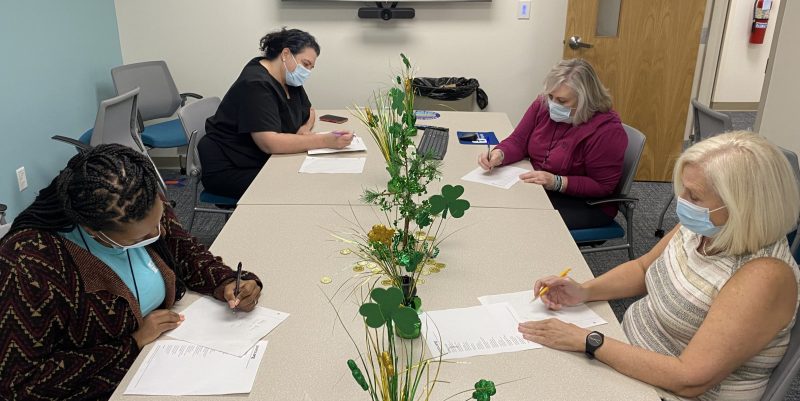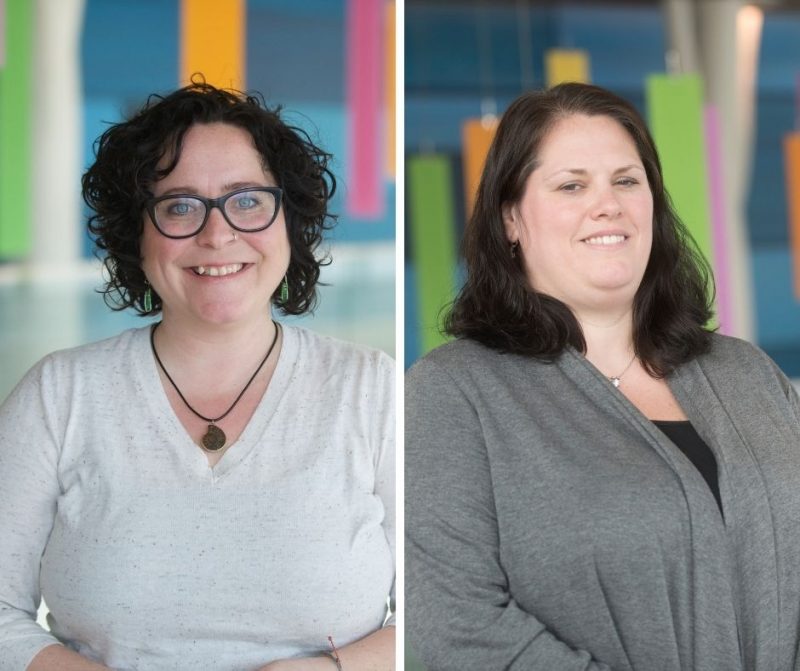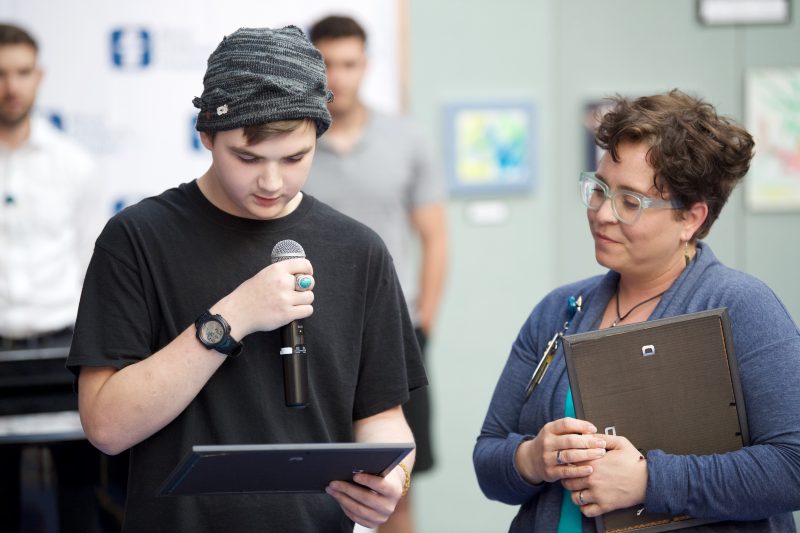
Medical professionals routinely take their patients’ medical histories when providing care. Now a grant-funded project at Akron Children’s Hospital is taking that idea a step further to encourage use of literature and personal stories to promote resiliency for patients and providers.
“Taking Our Histories: Providing Hope Through the Humanities” is a yearlong project that includes narrative medicine workshops for health care professionals at Akron Children’s, as well as patient families through the hospital’s Parent Advisory Council. A $20,000 grant from Ohio Humanities is helping to fund the project.
Akron Children’s narrative medicine coordinator Nicole Robinson, M.F.A., is heading up the effort with Cassandra Hirsh, D.O., an Akron Children’s palliative care physician.

Nicole Robinson and Dr. Cassandra Hirsh are collaborating to bring narrative medicine to more providers at Akron Children’s.
The project also includes facilitator training to help increase awareness of narrative medicine throughout the state via a partnership with the Ohio Pediatric Palliative and End-of-Life Care Network.
Narrative medicine uses methods such as close reading of poetry and literature and reflective writing to help build narrative competence, which increases medical staffs’ ability to acknowledge and interpret the stories of their patients and patients’ families. By exploring the ways in which stories are told through literature, health care professionals are better able to identify, follow and hear their patients’ narratives and provide better care.
“Through our series of workshops and training, we will give voice to health care professionals during a time where their human experience, perhaps more than ever, carries a historical relevance,” Robinson said. “‘Taking Our Histories’ will allow us to include more of our medical staff in this process, as well as provide a way to bring this resource to more patients and families here and throughout Ohio.”
The project goals are to minimize the negative effects of compassion fatigue and moral distress in providers, to strengthen their resilience against these harmful outcomes and to engage and enlighten the public on ways in which the humanities can be of use for health care professionals.
Data will be collected throughout the project, and reflective writing completed as part of the workshops will be compiled for a collection of stories.

Narrative medicine coordinator Nicole Robinson also works with patients like Dom Corbett, who is shown reading his poem at the Create, Heal, Inspire event in 2018.
Providers like Dr. Catherine Kelly-Langen, a pediatric palliative care physician, are already seeing benefits to participating.
“Being able to set aside designated time to process my emotions and express how our intimate, complex, profound work affects me is a true gift,” she said. “Having an outlet to express myself in a safe space is amazingly beneficial.”
Akron Children’s is believed to be the only pediatric hospital in the country with a full-time narrative medicine coordinator. Robinson is based in The Emily Cooper Welty Expressive Therapy Center, which provides holistic healing through the creative arts (imagery, storytelling, dance, music, drama, poetry and visual arts) to transform the hospital environment and create opportunities for expression, connection and self-identity.










